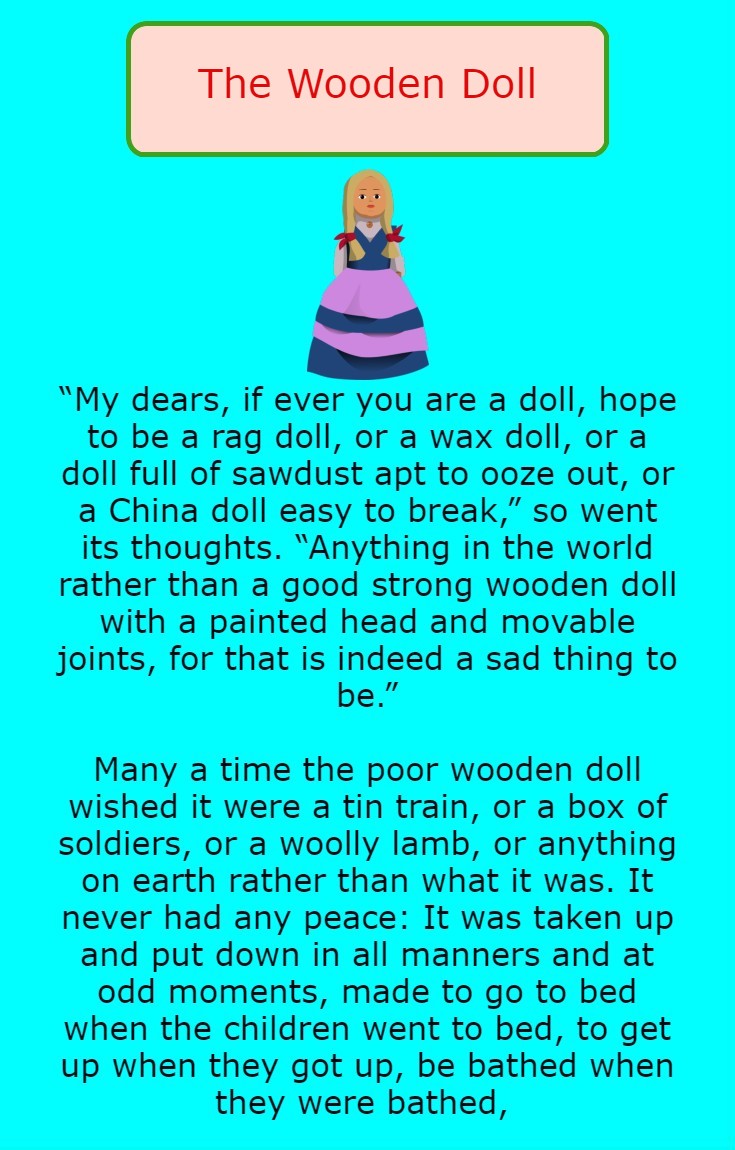The Wooden Doll
“My dears, if ever you are a doll, hope to be a rag doll, or a wax doll, or a doll full of sawdust apt to ooze out, or a China doll easy to break,” so went its thoughts. “Anything in the world rather than a good strong wooden doll with a painted head and movable joints, for that is indeed a sad thing to be.”
Many a time the poor wooden doll wished it were a tin train, or a box of soldiers, or a woolly lamb, or anything on earth rather than what it was. It never had any peace: It was taken up and put down in all manners and at odd moments, made to go to bed when the children went to bed, to get up when they got up, be bathed when they were bathed, dressed when they were dressed, taken out in all weathers, stuffed into their satchels when they went to school, left about in corners, dropped on stairs, forgotten, neglected, bumped, banged, broken, and glued together.
Anything and everything it suffered, until many a time it said sadly enough to its poor little self, “I might as well be a human being at once and be done with it!”
And then it fell to thinking about human beings: what strange creatures they were, always going about, though none carried them save when they were very little; always sleeping and waking, eating and drinking, laughing and crying, talking and walking, and doing this and that, never resting for long, or seeming as if they could not be still for even a single day.
“They are always making noise,” thought the wooden doll. “They are always talking and walking about, always moving things and doing things, building up and pulling down, making and unmaking forever and forever, and never quiet. It is lucky that we are not all human beings, or the world would be worn out in no time, and there would not be a corner left in which to rest a poor doll’s head.”
In the comfort provided by such a thought, the wooden doll was at peace with itself, and lay down for a well-earned rest.
